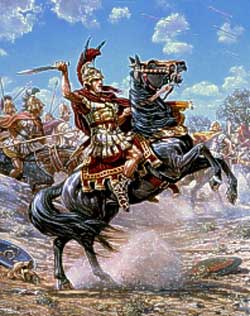H TRITH ELLADA (alternate naming, not to be used)
_Arcadian_ said:
I considered using "d", but it doesn't sound as good as using "th".
As for using "the" to replace "tha", I used "tha" because Hellathe might be interpretted as Hell
ayth. Anyways, its a very minor difference between the two, simply because "a" is more pronouncing, but "e" would sound better. I may change it to "e" latter on.
And don't worry, you won't have to wait that long!

Nope, you misunderstood. BY ALL MEANS leave it as ELLATHA. Ellathe is wrong. I just wanted it to be called "Ellada" (phonetically) rather than "Ella8a" (replace 8 with theta).
Seems to me by your nick that you are Arcadian descended. I received my basic training over there, and also my advanced gunnery training. ( I served as a Sargeant in the Greek Air Force, specialised in anti-infiltration ops and certified in Rheinmetal Rh-20mm AA gun). (In other words ugly grunt work cleaning and maintaining the gun, and a lot of training in apprehending suspects with/without military dogs-not to mention approx. 1800+ hours of guarding duty-night foot patrols). Nice city, Tripolis, only that the streets were empty from girls when they let us out. (wonder why

)
The only bad thing about my staying there, happened one afternoon when we were parading up and down in preparation of the march of the liberation of Tripolis, when all of a sudden all order was dissolved and our non-coms were urgently recalled for new instructions. No sooner than that, we were all running for the few TV screens in the camp to see with our own unbelieving eyes the twin towers collapse. The rest of my stay in Tripolis was a little ugly. Suddenly, everyone was that little rougher on us new recruits. Guard posts were tripled (and we manned them all), snipers in place, we were basically in a state of war. And that is not a good place for any soldier to be in...
(Ugliest thing I learnt is where to shoot a passenger liner - off the record). Makes me sick to my stomach still.
Well, back to the AAR in question. I have a little complaint. Why isn't albania/epiros a greek core? I mean I come from Ioannina, and There are greeks there, a lot of them too.
As for the Italians going out of Greece, well, let's just say that my grandfather was in the engineering corps during the war, my grandmother was carrying ammo and they met in the resistance, and got married after the war was over. That story still makes me proud to reminisce.
So, you understand, that you really need to add a Greek core in albania/epiros.
Oh, and another thing. We basically lost in Thermopylae, but kicked the hell out of the Persians a year later in Plateaie

Weird thing about this battle. Everyone west-descended after reading about Thermopylae (481-check sig), and what it meant (as it turns out most historians feel that our values freedom,democracy, started RIGHT THERE)... well feel that they too are part of Greece. Well, "ELLHNES KALOYMEN TOYS THN ELLHNIKH PAIDEIA METEXONTAS", as Isocrates put it or "We call Greeks those who partake in Greek culture, (aka those who learn how to be Greeks).
What the hell, I TOLD YOU TO CHECK MY SIG didn't I ...








